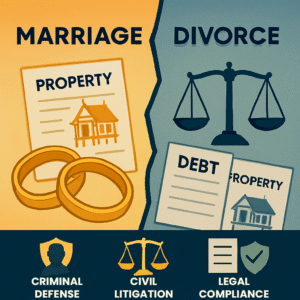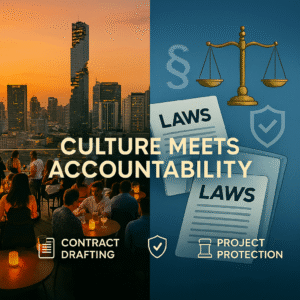Key takeaways
- There are three types of Alternative Dispute Resolution, namely arbitration, conciliation, and mediation.
- Alternative Dispute Resolution can provide parties with greater flexibility, cost-effective measures, and discreetness compared to traditional litigation held in court.
What is Alternative Dispute Resolution?
Alternative Dispute Resolution, commonly known as ‘ADR’, is a form of methods that are used to settle disputes between opposing parties outside of the court.
As Thailand looks to ensure that it can continue to be an attractive destination for foreign investment, ADR will continue to serve as a conduit to settling disputes.
The most recognisable forms of ADR are mediation and arbitration, while conciliation is also a growing area in Thailand.
As ADR becomes more commonplace in Thailand, we have provided a brief outline below on the several types of ADR that can be found in Thailand.
Mediation
A part of the Alternative Dispute Resolution Office, the Thai Mediation Center is the responsible entity for mediation proceedings in Thailand.
Before commencing mediation proceedings, the conflicting parties will agree upon the selection of a neutral mediator who will be tasked with settling the dispute between the parties. It should be noted that the Thai Mediation Center is in the position to appoint independent mediators to cases.
Arbitration
Arbitration is a process where a dispute is submitted, by an agreement between the conflicting parties, to a panel of independent arbitrators who will then consider the dispute and make a binding agreement based on the facts of the case.
In Thailand, arbitration proceedings can be administered on an ad hoc basis or by the Thailand Arbitration Center (THAC) or the Thai Arbitration Institute (TAI).
The process of arbitration in Thailand is governed by the Arbitration Act B.E. 2545 (2002) and the Civil Procedure Code. It should also be noted that awards permitted by arbitration bodies outside of Thailand are enforceable under the Act.
Conciliation
Similar to arbitration and mediation, conflicting parties opting for conciliation have control over most of the aspects of the dispute resolution process.
In conciliation proceedings, the conflicting parties will appoint an official conciliator who will work alongside both parties to come to some form of agreement. The conciliator has the authority to make recommendations, but also draft settlement agreements between the conflicting parties.
What are the advantages of ADR?
As forms of ADR become more commonplace in Thailand, it is key to note the advantages:
- Conflicting parties can determine the rules of the procedures.
- It is normally quicker to utilise ADR than going through the judicial process.
- Stronger ability to control the outcome of the proceedings.
- The particular nature of the dispute and outcome is a confidential matter.
How can WSR international help your business?
By opting to utilise ADR in Thailand, you can be rest assured that the team at WSR International are experienced in all forms of ADR in Thailand.
From real estate disputes to labour negotiations, WSR International are perfectly situated to assist you.
If you would like to discuss the contents of this article in further detail, please do not hesitate to reach out to the business and legal experts at WSR International.
𝗖𝗼𝗻𝘁𝗮𝗰𝘁 𝘂𝘀:
WSR International Co., Ltd.
Chartered Square Unit 16-05, 152 North Sathorn, Khwaeng Silom, Khet Bang Rak, Bangkok 10500 VAT Registration no: 0905565001881
Phone: 6692 616 4423
Email: info@wsrlawgroup.com





